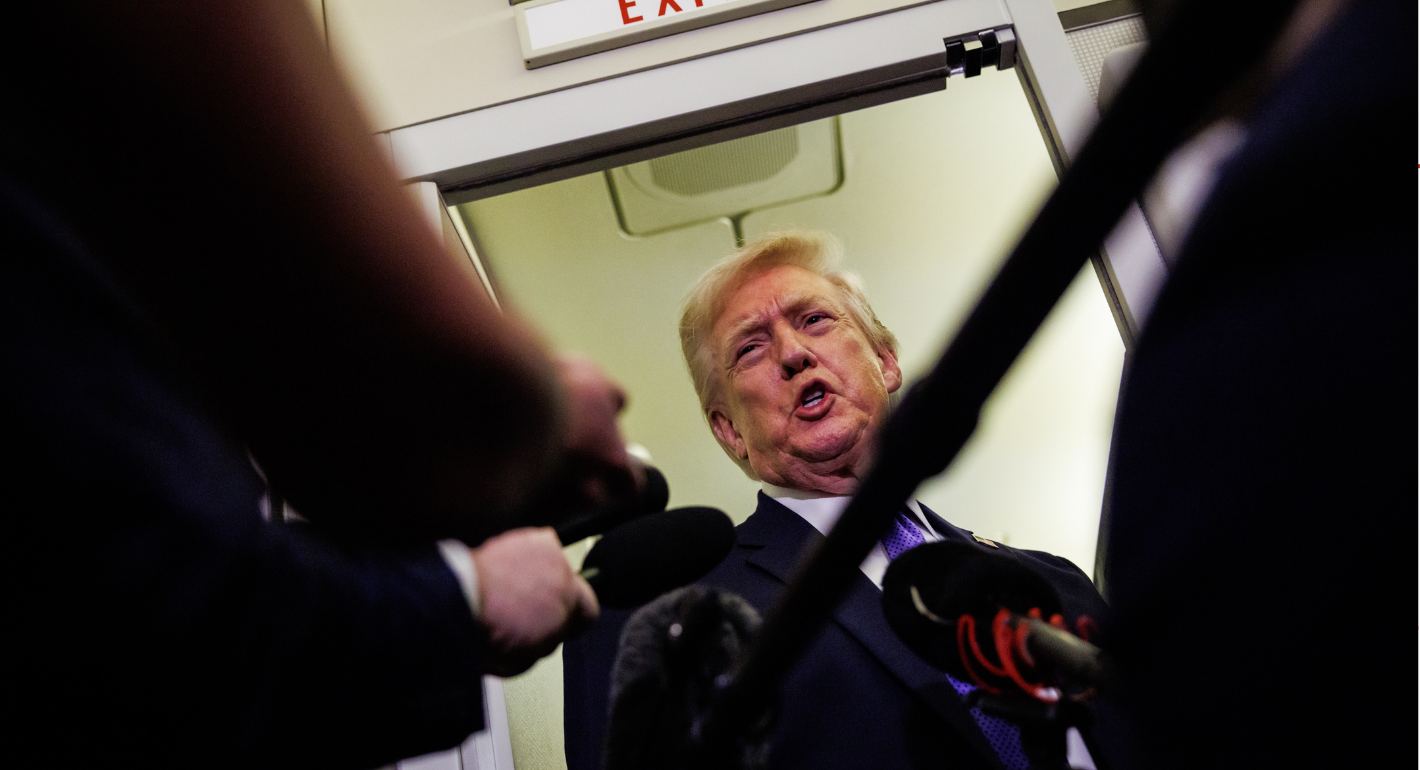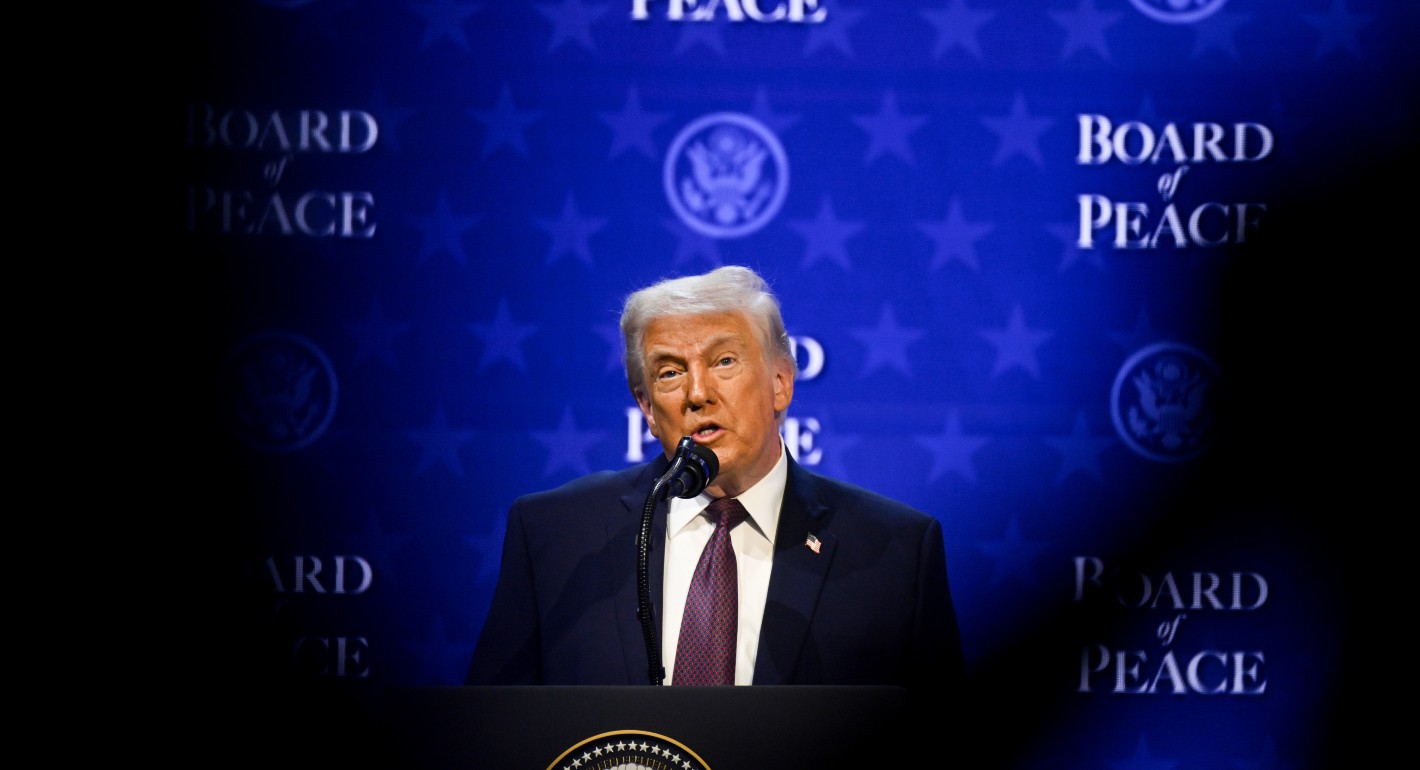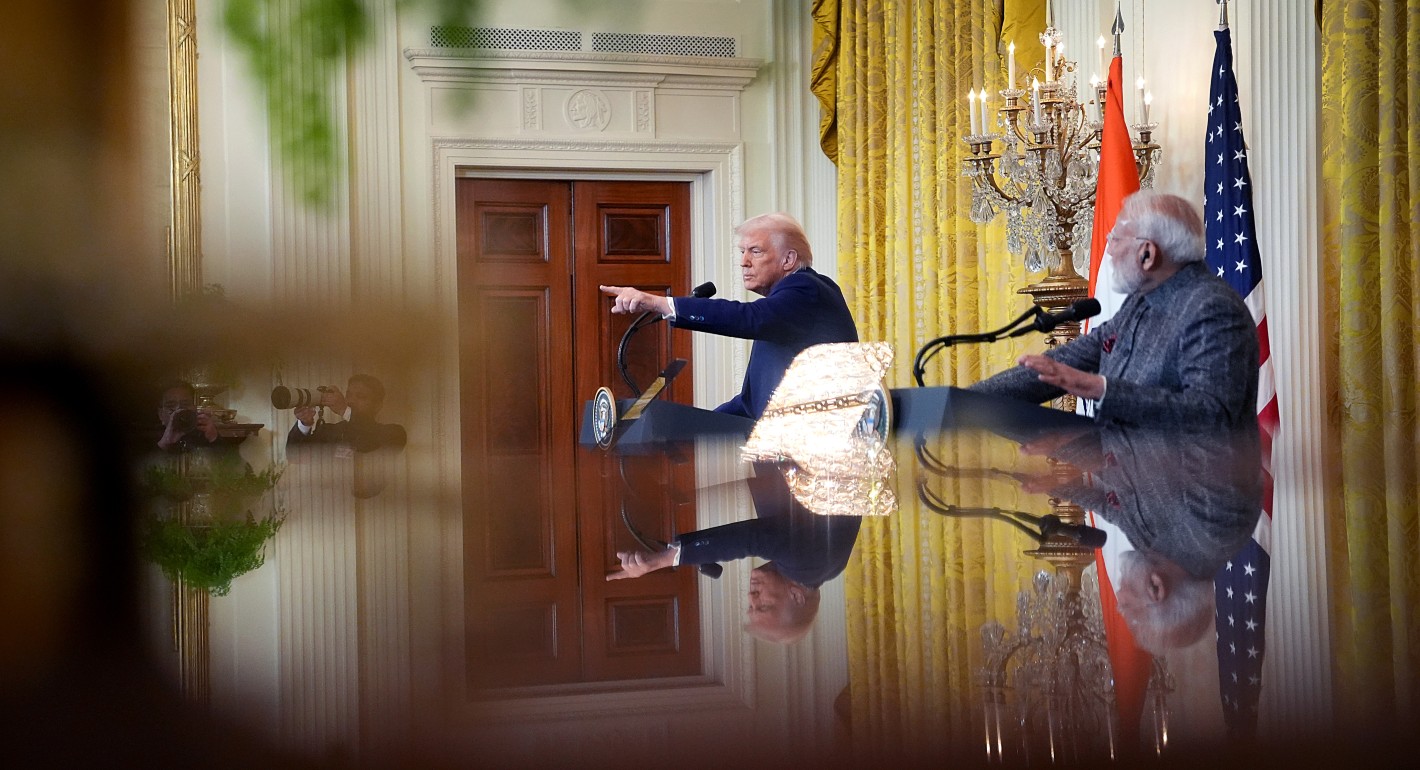Over the course of 2024, the Carnegie Endowment for International Peace and the City of Los Angeles convened more than a dozen listening sessions in support of the city’s development of its first ever Africa Trade and Investment Strategy. The listening sessions brought new voices, perspectives, and geographies directly into the policymaking process. In support of these sessions, select scholars developed exploratory essays on California-Africa connections. These essays are meant to inform policymaking considerations and to identify potential questions for future consideration in developing and examining California-Africa connections. They are at once expert and experimental and attempt not only to shape policy but also to provoke additional scholarship.
Cities the world over are domains of innovation and engines of economic production, often as a result of their open and cosmopolitan nature. They influence and are influenced by globalization, as well as local and regional dynamics of politics, culture, commercial, and socioeconomic activity. They are harbingers of the great potential and perils facing the world today. City administrations have wide purviews; they must deliver not only for their residents but often also interact with other cities within and beyond nation-state boundaries, as well as with actors who are influential in shaping international politics, economics, and institutions, all dynamics that affect cities. City governance, therefore, necessarily must tackle global and local (“glocal”) factors simultaneously.
Two of the most pressing global governance issues are playing out uniquely in cities: climate change and the diffusion of digital technologies. Half of the global population resides in cities, a figure expected to grow to two thirds by 2050. Rapid urbanization in Africa and Asia is driving infrastructure and building demands on cities. As a result, cities account for up to 75 percent of greenhouse emissions—primarily from transport and buildings—while only occupying 3 percent of the earth’s surface. Meanwhile, due to the rise of broadband connectivity, Internet of Things, artificial intelligence (AI), and other emerging technologies, developing and developed countries alike have been considering building smart cities. In such technology-forward urban centers, information and communications technologies—primarily datasets generated through interconnected devices such as smartphones and other sensor technologies—are leveraged to develop cities by enhancing leaders’ ability to make decisions about resource allocation and improving service delivery.
While the United States is home to some of the most prominent global cities, such as Los Angeles, New York, and Chicago, Africa is driving the future of urban growth. The continent is home to some of the youngest and fastest-growing cities and megalopolises. The continent’s urbanization rate was approximately 44 percent in 2021 and is projected to reach 60 percent in 2050. According to some estimates, the world’s largest cities will be in Africa by the year 2100. West Africa, for instance, harbors the world’s most rapidly urbanizing region—stretching from Lagos, Nigeria to Abidjan, Côte d’Ivoire—that will be home to approximately 51 million people by 2035. According to reporting from the Guardian, this corridor may well become “the largest zone of continuous, dense habitation on earth.” This growth is characterized by a convergence of youthful populations and economic, sociocultural, and political diversities that translate into intensifying demand for new infrastructure amid near- and long-term climate impacts and disruption. Some cities, such as Lagos, are already facing the threat of becoming unlivable due to rising sea levels and increased floods.
How Africa’s urban spaces develop and evolve into resilient, sustainable, and safe cities is a concern for both the continent and for the world. The continent’s cities are already, and will only continue to be, real-time test beds for ideas and ideologies of infrastructure development, innovations, investments, and institutional structures. They will increasingly attract contestation and cooperation of local, regional, and global impulses in shaping their governance directions. Not only does this fact have geopolitical implications, but it also has implications for the diplomatic practices of cities themselves. African cities present fertile ground to cultivate and elevate city diplomacy in the tool kit of contemporary global governance. In the international arena, city dynamics should have a role beyond traditional capital-to-capital foreign policy relations and beyond the nation-state as the sole unit of representation.
Climate Action Spurring City Diplomacy in Africa
While states—through political capitals—are the primary drivers of diplomatic engagements affecting African cities, city leaders are also carving out modalities for engaging in global governance and for attracting opportunities and investments to their cities. Networks such as the Global Parliament of Mayors (GPM)—a body for mayors, by mayors, and with members from all continents—exist to ascertain cities’ stake in global governance, and they draw active membership from African mayors. GPM serves as a convening entity for heads of cities to engage among themselves and with national and international institutions—such as the Group of 7—so that “mayors [can] take leadership and ownership of the global challenges that they face on a local level.” C40 Cities, another influential network, focuses its efforts on spurring climate action and has thirteen African cities as members. C40’s diplomacy efforts support cities and their leadership in glocal political engagements on climate action and, notably, in “removing barriers to city-level action.”
In Freetown, Sierra Leone, the mayor has elevated the city’s climate leadership locally and internationally. She co-chairs C40 Cities alongside the mayor of London and appointed Africa’s first chief heat officer to address rising heat in the city. Furthermore, she initiated a citizen-oriented pay-to-grow urban reforestation scheme that leverages technology to incentivize citizens to plant indigenous trees and monitor them over years, for which they receive tokens that can be exchanged for cash as verified life cycle milestones are achieved. Meanwhile, Nairobi—which used to be known as the Green City in the Sun based on its natural topography—has become a leading technology innovation hub and faces the challenge of restoring its former title amid increasing urbanization. Nairobi serves as the global headquarters for two key multilateral bodies: the United Nations Human Settlements Program (UN-Habitat) and the United Nations Environment Program (UNEP). Their mandates collectively address urban governance, climate, and sustainable development, and they are exploring the role of digital technologies therein. Nairobi thus has convening power and is a viable site for smart city diplomacy partnerships embedded in existing global governance architectures. The city hosted the inaugural Africa Climate Summit in September 2023 that congregated and centered African perspectives for shaping a common African position to assert the continent’s leadership in global climate diplomacy.
Tech in the City
Though climate action is one of the primary focuses of international city networks, the role of digital and emerging technologies in governing cities—and in turn, these technologies’ climate impact—is slowly but steadily gaining prominence on the agendas of city governance. Digital and emerging technologies trigger a bidirectional relationship with climate change within a contemporary governance framework, that is, if and how these technologies can help in addressing climate concerns, and in turn how climate action urgency can spur resilient or climate-friendly digital infrastructure. For example, digital technologies can help improve public transportation to minimize emissions; however, the technologies that are developed to “green up” mobility from one angle should not end up creating more environmental problems from other angles, such as electronic waste or heavy dependence on carbon-intensive energy sources.
As AI excites global governance discussions, cities provide ready applications for scenarios such as the prospects of AI in policing, transportation, waste management, and housing. City and subnational authorities are starting to roll out their own plans for AI governance as a result. The New York City Artificial Intelligence Action Plan identifies priority actions for the city government in using and governing the technology. As part of a September 2023 executive order, the State of California released a report on the potential and pitfalls of generative AI in state government, with some identified action areas including establishing partnerships with leading universities to evaluate the technology’s impacts, legislative engagement toward developing policy recommendations, and state employee training, to name a few. With such leadership from U.S. cities, there is potential to leverage existing city networks or foster new ones to jointly deliberate, exchange insights, and generate knowledge on governance of and with AI at the city and state level, as global governance discussions cover a wider scope.
The smart city concept, meanwhile, is evolving from merely deploying novel technologies into cityscapes to wholistically addressing how cities can be sustainable and ecological in an era of rapid digitalization. Beyond just leveraging information and communication technologies for efficiency in service delivery and urban governance, the smartness invoked in the concept of a smart city now speaks to an adaptive capacity for timely innovation combining technical and social components, while also making the smart city a platform that facilitates innovation toward enhancing productivity, sustainability, and livability. For instance, a 2017 plan known as Smart Sustainable Cities: A Blueprint for Africa outlined the potential for smart cities to help African cities realize goal eleven of the UN’s Sustainable Development Goals. The blueprint defines an African smart and sustainable city as one “in which leaders and citizens use data, information and knowledge to ensure a co-created resilient [and] sustainable future.” The plan further asserts that this is achieved through inclusive planning, data-led management, community-based infrastructure, services optimized for efficiency, localized economic development, and shared innovation. UN-Habitat refers to “people-centred smart cities,” in which technology and innovation are deployed “to ensure sustainability, inclusivity, prosperity and human rights in cities” and for which international guidelines are currently being developed. This framing also emphasizes the imperative for financing this approach to improve lives for city dwellers, particularly those in the Global South.
Cities such as Los Angeles are in advanced stages of realizing their smart city strategies; meanwhile, most smart city initiatives in Africa are nascent. Still, the concept continues to energize discussions about the future of African cities. Discussions include the ambitious proposal to set up Africa’s first free zone for the digital economy in Lagos, as well as an eco-friendly smart city in Sierra Leone envisioned by the British actor Idris Elba. The key advantage that the smart city model offers Africa’s cities, new and upcoming ones especially, is alternative ideas and approaches to urban planning, since smart cities are unencumbered by legacy infrastructure.
Toward Smart City Diplomacy
New technologies present opportunities to build cities differently by adopting emerging global best practices, including Indigenous ecological knowledge, for eco-friendly and sustainable urbanization. Thus, smart city diplomacy is a prospective umbrella under which information exchange, negotiation, and representation—the traditional functions of diplomacy—can be utilized to carve out the governance of technology and climate change, with the city as a unit of analysis and African cities as sites of praxis.
In the United States, Los Angeles is a leader in city diplomacy. It was the first city stateside to appoint a deputy mayor of international affairs with a mandate to connect the city to the world and the world to the city. This bureaucratic and political elevation of global affairs provides an exciting opportunity for Los Angeles to carve out creative, agile, and mutually beneficial engagements with cities in Africa, a continent with young, fast-changing and rapidly growing cities. The partners should focus particularly on two concrete, yet complex, contemporary themes: climate change and governance with and of emerging technologies. In the case of climate change, African cities have already been actively engaging in various international city networks and asserting themselves as veritable global actors, although their nascent technology sector hubs are less visible on the global technology governance stage.
Los Angeles, meanwhile, is home to the third-largest technology ecosystem in the United States. It is a hub of one of the most globally renowned and admired creative industries and media economies, both of which are impacting and being impacted by digital technologies. Los Angeles in turn can learn from the agility, youthfulness, and innovation occurring in African cities. The continent is also bringing to the fore Indigenous practices, not only to diversify globalized knowledge corpuses but also to challenge traditional, so-called West-to-rest models of expertise, on both the digital technologies and climate action fronts. Additionally, Los Angeles city diplomacy is operating within a framework that intertwines with state diplomacy; undoubtedly, this would be a viable plank for information exchange with African cities in the more nascent stages of carving out their space in the international arena. These cities will need to navigate the tensions that may arise when making the case that subnational engagements led by cities contribute to national interests that are otherwise a function of national foreign policy/state-led diplomacy.
At a subnational level, African cities are carving out their niche areas of city diplomacy. South Africa’s foreign policy has provisions for cities to engage in international relations. The City of Cape Town—the oldest and second-largest city in South Africa—has an International Relations Department focusing on economic diplomacy to market the city globally, enhancing an enabling environment for investments and creating enterprises within its local economy. Mayor Yvonne Aki-Sawyerr of Freetown has been feted (and targeted) for her efforts to foster international partnerships by engaging embassies, missions, international development actors, and others to drum up investments for the city. On the outskirts of Nairobi, Africa’s Silicon Savannah—albeit still developing along the traditional conceptualization of a smart city—plans to draw from various international best practices and learn from other cities, such as Barcelona and Amsterdam, which have incorporated smart city frameworks. Fostering intentional connections with cities in California—the home of Silicon Valley, from which the Kenyan government–planned smart city Konza Technopolis draws its titular inspiration—can facilitate vibrant, contextual knowledge exchange and even investments, in particular to help adapt the smart city ambition to be fit for purpose with evolving tech and climate governance concerns. These examples show a particular but important pathway to elevating city diplomacy and developing a smart city diplomacy framework: utilizing multistakeholder international engagements with other cities on the continent and the rest of the globe to strengthen diplomatic ties and energy action at home.
City diplomacy—or how cities represent themselves and their interests, including to one another, in the international political arena—is a crucial lever for achieving local sustainable development. Cooperation and collaboration between and among city actors are thus a natural progression in an interconnected world with vested interests among diverse stakeholders, not just mayors and national governments. Smart city diplomacy can become a contemporary avenue for cities to engage in glocal governance and showcase how digital technologies both are infused into how cities run and interact with how cities’ economic, social, cultural, and human resources are developed and efficiently managed toward climate action and sustainable and resilient futures. Existing networks, such as C40 Cities, GPM, and others that may foster intercity engagements, can adopt this approach to represent their interests, explore opportunities, and collectively address risks and potential harms given the planetary scale of issues at the nexus of climate change and emerging digital technologies that are converging on cities. The sparks of city diplomacy are present both in the United States and the African continent; they can be creatively flamed to foster solidarity, encourage formalized and legitimate subnational diplomacy, and mutually support the foreign policy aims of the respective nation-state actors who remain the primary unit of international relations.
Notes











